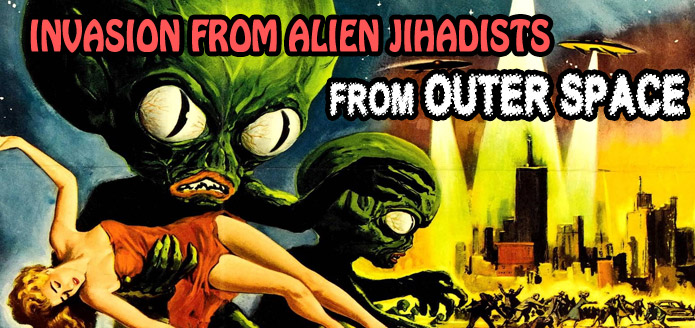Do we truly enjoy freedom only when we are about to lose it?
Everything goes as if our societies became incapable of understanding the importance of democratic values, except when a major crisis is about to deprive us of our rights.
The terrorist attacks on Charlie Hebdo gives a good illustration of this. After the initial trauma, the weeks that followed were stirring. The French, numbed by decades of collective powerlessness, have suddenly pulled out of their depression to live a great moment of solidarity echoed across the globe.
At the same time, this awareness was accompanied by a bitter realization: was it really necessary to live such a drama to appreciate the importance of freedom?
Anyway, this sacred union quickly faded: french television continued to broadcast depressive news all day long, and government was quick to introduce a widespread surveillance system similar to the Patriot Act.
The collective of fear
This ambiguous relationship between fear and democracy is nothing new.
American films of science fiction from the fifties showed towns attacked by giant spiders from outer space. Confronted to this external threat, the good citizens forgot their differences and united in a common fear of aliens.
Political power unconsciously (and sometimes quite consciously) reinforces collective fear because it reinforces the need for security within the walls.
For forty years, Cold War held this role, communism and capitalism playing one towards the other the role of the evil Alien for welding the community in a collective fear.
But the collapse of communism left the political power without a clear enemy to polarize society. And western democracies finally installed Islamic fundamentalism in this role.
It is now terrorism who now plays the role of existential flavor enhancer, forming a permanent and indiscriminate threat that normalizes the society as a whole.
Except that social problems have become so important that diversion techniques will not work anymore, and it will eventually become clear that terrorism itself is not a cause but a symptom of the problem.
Terrorism, a social issue
France is one of the most unhappy countries in the world. It is also one of the most self-destructive. In 2015, deaths due to suicide, alcohol, smoking and drugs will represent about 160,000 deaths in France. It is 10,000 times more than what has been caused by terrorist attacks.
You may say that the two phenomena have nothing to do. I think they are, however, closely related.
The majority of the terrorists who threaten France today are not foreigners, but people who were born and raised in France. They are young French who at some point in their journey, found themselves cut off from the rest of society and have found as the only answer to their discomfort was radicalization and violent action. Thus the number of youth who went to Jihad grew from a few dozen to 1,200 in 2014, and this figure will certainly continue to explode in the incoming years.
This exponential increase follows a logic of contagion among young people This was already observed in the case of suicide (the “suicide clusters” which are observed especially among students) and departures for Jihad follow exactly this logic of social imitation.
It seems difficult to interpret this collective movement other than as a cry thrown in the face of society: “yet we prefer to die at the other end of the World for an absurd reason to continue to live a lie you impose to us”.
In other words, I think we should consider terrorism not as a religious, but as a social issue, which finds its true cause in the fact that society as a whole is unhappy and plagued by frustration and nihilism.
Sick of fear
If you are unhappy in your life, your body will translate it. First you’re going to have a stomach ache. This suffering will be for your body a way to communicate a message: “stop stressing, find another way of life.”
If you keep going, the stomach ache will become an ulcer. And if things get worse again, the ulcer will turn into a cancer. And at the end of the process, you will find in front you a good doctor who will explain calmly that he has to remove your stomach, then start a chemotherapy that has two out of three chance to kill you. But, you know, it’s a necessary security measure for your own good…
Monitoring the Internet is just one step that fits into a logic where control will become ever more ubiquitous: since alcohol is 130 deaths per day in France, why not install cameras in all bars? Since we are determined by our genes and social environment, why not detect criminogenic factors in babies and put them in prison before they become murderers?
We are at the stage of the ulcer, and it is still time to act on the causes before our collective attention is completely diverted by the symptoms and before the political powers will treat us… to death.

